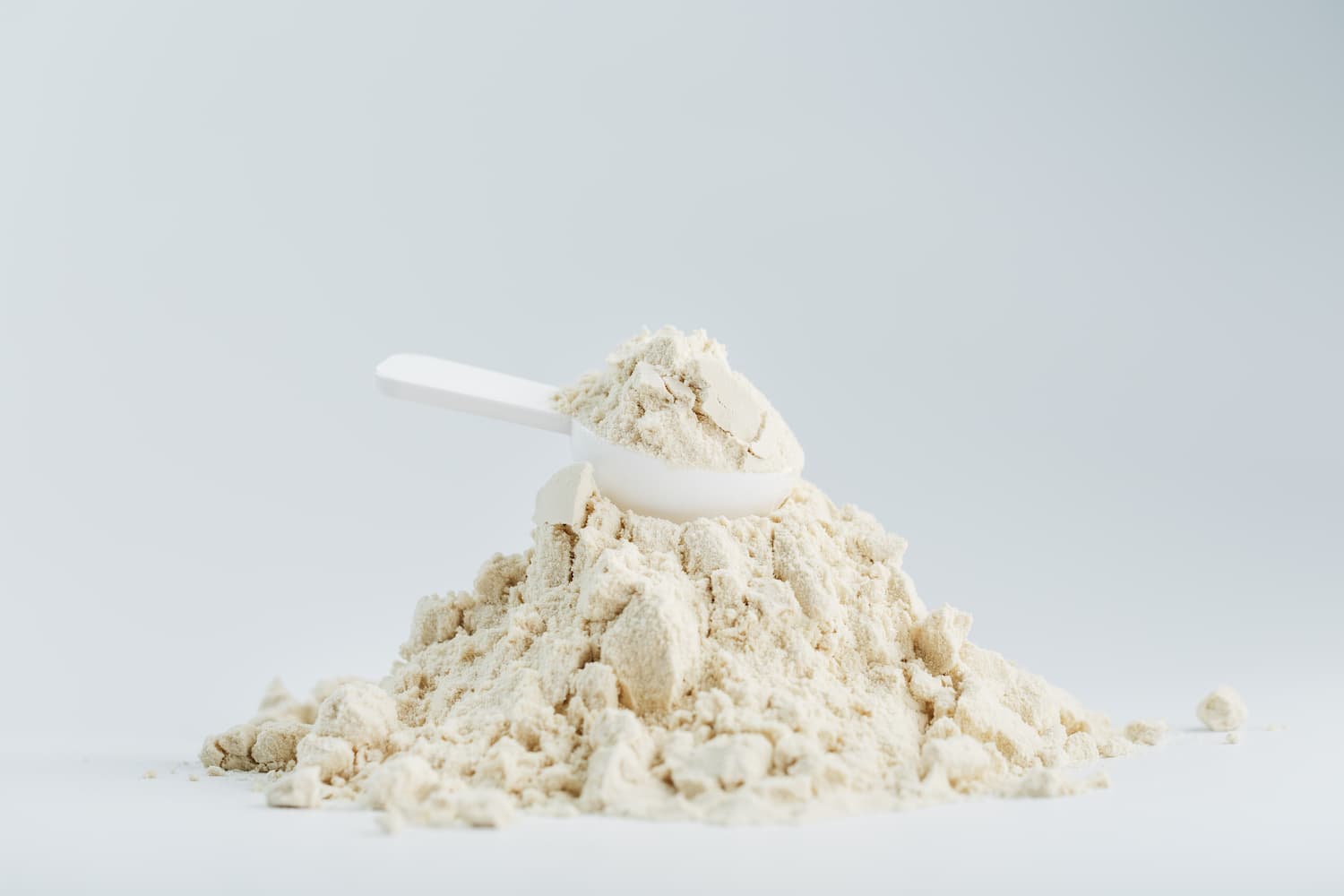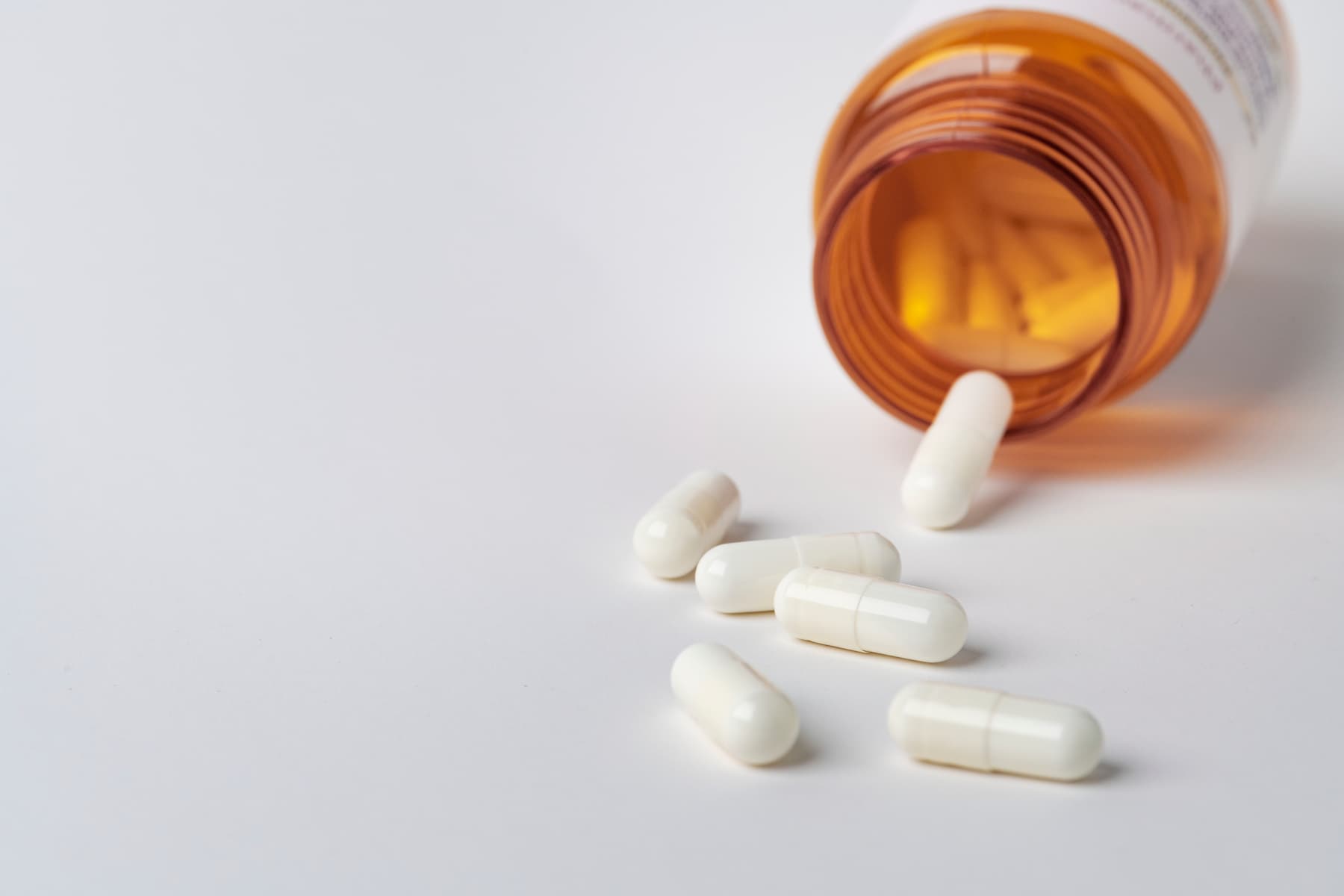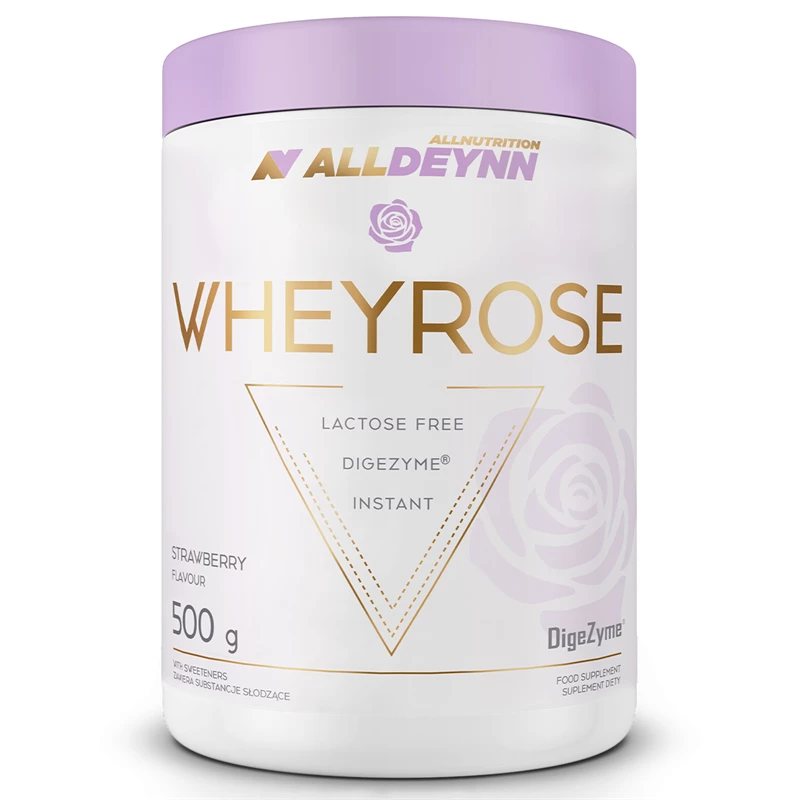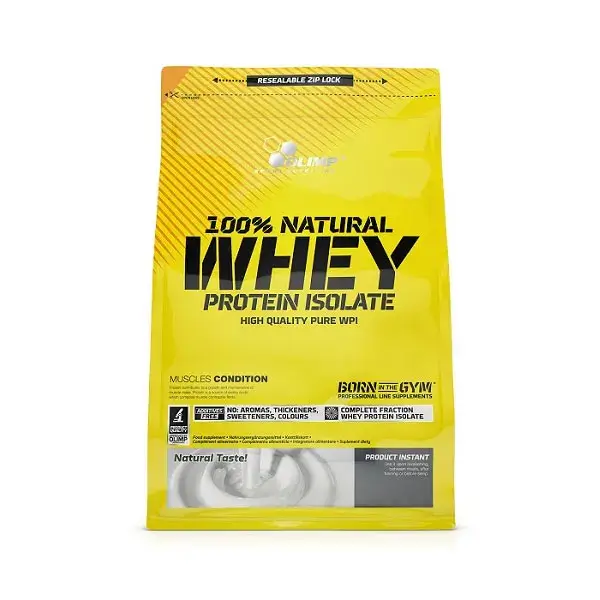Methionine (L-methionine) - properties, what it is, where it occurs
Methionine is a little-known amino acid that is responsible for many functions in the body.


Learn more about our editorial process
.

Learn more about our editorial process
.

Learn more about our editorial process
.

Learn more about our editorial process
.
Why you can trust us
Articles on Natu.Care are written based on scientific research, data from government websites and other reliable sources. The texts are written in cooperation with doctors, nutritionists and other health and beauty experts. Articles are reviewed before publication and during significant updates.
.Learn more about our editorial process
.Information about advertisements
Content on Natu.Care may contain links to products from the sale of which we may receive a commission. When creating content, we adhere to high editorial standards and take care to be objective about the products discussed. The presence of affiliate links is not dictated by our partners, and we select the products we review ourselves completely independently.
.Learn more about our terms and Conditions
.Methionine is an amino acid that the body cannot produce on its own. It influences neurological function, acts as an antioxidant, and supports liver function. That's probably a good reason to supplement it, right? No.
With a pharmacist we will talk about how methionine works, whether it is worth taking it in supplement form, and why limiting it may...support cancer treatment.
See also:
What is methionine?
.Methionine is an amino acid exogenous - it must be supplied with food, as the human body cannot produce this compound on its own. Methionine is one of the twenty essential amino acids that make up proteins. It contains sulphur (as does cysteine), which is unique among all amino acidsand.
.This characteristic makes methionine play an important role in many metabolic processes. For example, it is involved in the synthesis of other amino acids and some hormones, and is also essential for the production of taurine, an important component of bile.
Methionine is also crucial for the proper functioning of the immune system, supporting the production of antibodies in the bodyand.
Interesting facts
.Larvicides for mosquitoes are effective in reducing the number of adult females that bite and potentially spread disease organisms. Methionine has been shown to be a highly effective larvicide against four mosquito species.
Methionine has been shown to be a highly effective larvicide against four mosquito species.
L-methionine and D-methionine - how do they differ?
.L-methionine and D-methionine are two different forms of methionine that differ in spatial configuration. Despite this, usually when we refer to 'methionine' without an additional term, we mean L-methionine. Why?"
L-methionine is the biologically active form of methionine. It also occurs naturally in animal and plant proteins. It is this form of the amino acid that is used by the body for protein formation and many other metabolic functionsand.
D-methionine on the other hand, is a form of the amino acid that has limited activity and is less present in nature. Therefore, it is not usually used for protein synthesis in living organismsand.
What formula does methionine have?
.Methionine has the chemical formula: C5H11NO2S. This means that its molecule consists of five carbon atoms (C), eleven hydrogen atoms (H), one nitrogen atom (N), two oxygen atoms (O) and one sulphur atom (S)and.
Is methionine and cysteine worth taking together?
.Methionine and cysteine are sulphur amino acids, i.e. amino acids that contain a sulphur atom in their chemical structure. As a result, they exhibit unique properties and are linked to many processes in the body.
Cysteine is an amino acid that the body can produce on its own, but its production depends on methionine resources. Therefore, the simultaneous intake of methionine and cysteine supplements can be beneficial, especially for people with special dietary needs, such as vegetarians, vegans, seniors or patients with certain ailments (e.g. liver disease)and.
What methionine is for - effects and properties
.Methionine is an important amino acid that plays vital roles in the functioning of the body. As one of the 'building blocks' of proteins, it influences protein synthesis, supports the immune system, and regulates the liver.
What properties does methionine exhibit?
.Promoting neurological function
.Methionine is involved in the synthesis of important neurotransmitters such as dopamine and norepinephrine, which are crucial for the proper functioning of the nervous systemand.
.Dopamine, among other things, controls motor movements, and norepinephrine acts as a hormone and neurotransmitter, and is known for its effects on attention, stress responses and alertness .
.Dopamine also affects mood and the will to perform. When we fall in love and feel "butterflies in the stomach", we are experiencing the effect of dopamine..
 .
.
Ilona Krzak Master of Pharmacy
Another function of methionine in the nervous system is its effect on homocysteine levels - a substance whose higher levels in the body are associated with a higher risk of heart disease and stroke. Methionine is the metabolic pathway for homocysteine, so adequate amounts in the diet can help maintain normal homocysteine levelsand.
Antioxidant activity
.Methionine is involved in the production of glutathione and therefore affects antioxidant protection. Glutathione is one of the most important antioxidants helping to neutralise free radicals and protect cells from their damaging effectsand.
Free radicals are unstable molecules that cause damage to cells and tissues in the body, leading to ageing and many chronic diseases. The antioxidant action of methionine is to provide the necessary sulphur for the production of glutathione, which then effectively neutralises free radicalsand.
As a result, methionine can protect the body from oxidative stress, which is important for maintaining overall health and improving longevityand.
.Regulation of liver function
.Methionine is an essential component of taurine, an amino acid that is required for bile production. As a result, methionine influences the digestive process, as well as the elimination of toxins from the bodyand.
Biliary, produced by the liver, is essential for the digestion of fats. When methionine levels are low, bile production can be reduced, which in turn will translate into problems with fat metabolismand.
Additionally, methionine is essential for the regeneration and protection of liver cells. Due to its antioxidant properties, it can protect the liver from the damaging effects of free radicals and other toxic substances .
Methionine is recommended for non-alcoholic fatty liver disease. It regenerates its cells and improves the function of this organ..
 .
.
Ilona Krzak Master of Pharmacy
Immune support
.Methionine has a key effect on the immune system - it is essential for the production of antibodies, important proteins for immunity. These are what recognise and neutralise pathogens such as bacteria and virusesand.
Additionally, methionine helps regulate inflammatory responses, which are part of the immune response to infection or damage. Balance in these processes is important for a healthy immune system. Maintaining healthy levels of methionine in diet, can therefore help to boost immunity and protect against many diseasesand.
ALLDEYNN WHEYROSE
Product description
Protein supplement containing whey protein concentrate (WPC) with added digestive enzymesós. It digests well, is an easy and quick way to provide protein and can be consumed by people with lactose intolerance. It will work well not only as a stand-alone drinkóy but also as a tasty addition to shakesóy, dessertsóy, oatmeal or omeletóy.
WHEYROSE contains five digestive enzymes that help break down macromolecules into smaller components, so that the ingredients from food and the nutrient are absorbed even better. This minimises or even eliminates digestive discomfort. Such an addition is rare in protein supplements.
.Pros and cons
Protein supplement containing whey protein concentrate (WPC) with added digestive enzymesós. It digests well, is an easy and quick way to provide protein and can be consumed by people with lactose intolerance. It will work well not only as a stand-alone drinkóy but also as a tasty addition to shakesóy, dessertsóy, oatmeal or omeletóy.
WHEYROSE contains five digestive enzymes that help break down macromolecules into smaller components, so that the ingredients from food and the nutrient are absorbed even better. This minimises or even eliminates digestive discomfort. Such an addition is rare in protein supplements.
.Additional information
Protein supplement containing whey protein concentrate (WPC) with added digestive enzymesós. It digests well, is an easy and quick way to provide protein and can be consumed by people with lactose intolerance. It will work well not only as a stand-alone drinkóy but also as a tasty addition to shakesóy, dessertsóy, oatmeal or omeletóy.
WHEYROSE contains five digestive enzymes that help break down macromolecules into smaller components, so that the ingredients from food and the nutrient are absorbed even better. This minimises or even eliminates digestive discomfort. Such an addition is rare in protein supplements.
.User review
Protein supplement containing whey protein concentrate (WPC) with added digestive enzymesós. It digests well, is an easy and quick way to provide protein and can be consumed by people with lactose intolerance. It will work well not only as a stand-alone drinkóy but also as a tasty addition to shakesóy, dessertsóy, oatmeal or omeletóy.
WHEYROSE contains five digestive enzymes that help break down macromolecules into smaller components, so that the ingredients from food and the nutrient are absorbed even better. This minimises or even eliminates digestive discomfort. Such an addition is rare in protein supplements.
.ALLDEYNN VEGEROSE
Product description
A protein supplement made from five plant proteins enriched with acacia fibre, flaxseed, MCT oil and the probiotic-prebiotic complex LactoWise®. It is a synbiotic thatós stimulates the developmentóy and growth of beneficial bacteria in the gastrointestinal tract and shows a beneficial effect on the condition of the digestive system.
Pros and cons
A protein supplement made from five plant proteins enriched with acacia fibre, flaxseed, MCT oil and the probiotic-prebiotic complex LactoWise®. It is a synbiotic thatós stimulates the developmentóy and growth of beneficial bacteria in the gastrointestinal tract and shows a beneficial effect on the condition of the digestive system.
Additional information
A protein supplement made from five plant proteins enriched with acacia fibre, flaxseed, MCT oil and the probiotic-prebiotic complex LactoWise®. It is a synbiotic thatós stimulates the developmentóy and growth of beneficial bacteria in the gastrointestinal tract and shows a beneficial effect on the condition of the digestive system.
Expert opinion
A protein supplement made from five plant proteins enriched with acacia fibre, flaxseed, MCT oil and the probiotic-prebiotic complex LactoWise®. It is a synbiotic thatós stimulates the developmentóy and growth of beneficial bacteria in the gastrointestinal tract and shows a beneficial effect on the condition of the digestive system.
ALLDEYNN VEGEROSE
Product description
A protein supplement made from five plant proteins enriched with acacia fibre, flaxseed, MCT oil and the probiotic-prebiotic complex LactoWise®. It is a synbiotic thatós stimulates the developmentóy and growth of beneficial bacteria in the gastrointestinal tract and shows a beneficial effect on the condition of the digestive system.
Pros and cons
A protein supplement made from five plant proteins enriched with acacia fibre, flaxseed, MCT oil and the probiotic-prebiotic complex LactoWise®. It is a synbiotic thatós stimulates the developmentóy and growth of beneficial bacteria in the gastrointestinal tract and shows a beneficial effect on the condition of the digestive system.
Additional information
A protein supplement made from five plant proteins enriched with acacia fibre, flaxseed, MCT oil and the probiotic-prebiotic complex LactoWise®. It is a synbiotic thatós stimulates the developmentóy and growth of beneficial bacteria in the gastrointestinal tract and shows a beneficial effect on the condition of the digestive system.
Expert opinion
A protein supplement made from five plant proteins enriched with acacia fibre, flaxseed, MCT oil and the probiotic-prebiotic complex LactoWise®. It is a synbiotic thatós stimulates the developmentóy and growth of beneficial bacteria in the gastrointestinal tract and shows a beneficial effect on the condition of the digestive system.
Methionine - dosage
.The recommended dosage of methionine (in combination with cysteine) is 14 mg/kg body weight. Therefore, a person who weighs 70 kg should take about 1 gram of methionine per day. Despite this, some experts recommend taking up to 2 grams of this amino acid per dayand.
For people who have a special need for this amino acid - such as seniors - the dose can be increased to 3 grams per dayand.
.Preferably, you should start your methionine intake with low doses (up to 1 g) and then gradually increase the portions if you feel you need it.
.With methionine dosing you need to be very careful. Research suggests, that 11.3 grams of this amino acid causes ketosis and acidosis. Furthermore, side effects such as nausea, constipation and bad breath have been noted with 10 gram portions..
 .
.
Ilona Krzak Master of Pharmacy
Where methionine is found - food products
.Methionine can easily be provided with your diet. You can find this amino acid in numerous foods. Which foods contain the most methionine?
|
Source . |
Methionine content per 100 gand |
|
Brazil nuts . |
1124 mg |
|
Indic |
931 mg |
|
Beef steak |
905 mg |
|
Tuna |
885 mg |
|
Pork cutlet |
850 mg |
|
Ricotta cheese |
284 mg |
|
Tofu |
211 mg |
|
White beans |
146 mg |
|
Milk |
88 mg |
Methionine deficiency
.Methionine deficiency can result from various causes. One of the most common causes is an inadequate diet. Methionine is an endogenous amino acid (the human body does not produce it), so it must be supplied with food. Diets low in methionine, such as vegan or vegetarian diets, without proper meal planning, can lead to a deficiency of this componentand.
Some people may also have a problem absorbing methionine from food, which also leads to a deficiency. Although rare, certain medical conditions, such as liver disease, kidney disease or metabolic disorders, can impede the proper absorption of methionineand.
In addition, various ailments and infections can increase the need for methionine. If the patient does not adjust the intake of this amino acid from the diet, a deficiency may occur.
A diet devoid of methionine or total parenteral nutrition without this amino acid can cause regression of various cancers. Many primary cancers have been shown to have an absolute requirement for methionine..
 .
.
Ilona Krzak Master of Pharmacy
Research therefore suggests that methionine restriction may become an additional strategy for cancer treatment, especially when combined with chemotherapy - adds pharmacist.
Symptoms of methionine deficiency
.Methionine deficiency in the body can cause a variety of symptoms, often associated with impairment of certain metabolic functions. What are the most common symptomsand?
- Growth impairment. Methionine is essential for normal growth and development. Deficiency of this amino acid, can slow these down and also lead to delays in physical development in children.
- Methionine deficiency.
- Fatigue. Methionine is involved in energy production, so a lack of it can result in feelings of chronic fatigue and lack of energy.
- Dermal problems. Methionine deficiency is not uncommonly manifested by dry skin, loss of skin firmness or other skin problems.
- Hepatic disorders. Methionine is needed for normal liver function - a deficiency can lead to disorders of this organ.
- Nervous system problems. Methionine plays a key role in the production of certain neurotransmitters, so a deficiency is not uncommon to result in nervous system problems. Symptoms can then include depression, anxiety, sleep disorders or problems with concentration. .
Methionine excess
.Methionine excess is most often the result of unwise supplementation. Although this amino acid is found in numerous foods, it is virtually impossible to overdose on it from the diet. Much more often, long-term intake of high doses of supplementsand leads to this condition.
Symptoms
.Symptoms of methionine excess can include nausea, vomiting, irritability, lethargy, dizziness and irregular heartbeat. In extreme cases, the condition even leads to more serious health problems such as liver damage or heart diseaseand.
If you suspect an excess of methionine, the most important step is to contact your doctor. A specialist will probably recommend stopping supplementation and suggest blood tests to check methionine levelsand.
Scientific studies suggest that a moderately high intake of methionine will not lead to excess methionine and subsequent risk of cardiovascular disease. Only 5 times the recommended dose causes side effects..
 .
.
Ilona Krzak Master of Pharmacy
Overall, when treating excess, it will also be necessary to change diet and stop supplementation, and to regularly monitor methionine levelsand. Systematic testing is important to make sure that methionine levels are returning to normal and that there are no associated health problems.
One way to reduce high levels of methionine in the body is to administer another amino acid - glycine..
 .
.
Ilona Krzak Master of Pharmacy
Methionine supplementation
.Methionine supplementation can be effective in several situations. First and foremost, it is recommended to people who have difficulty providing methionine in their diet. This is particularly common in people on vegetarian or vegan diets, as this amino acid is mainly present in zoonotic productsand.
Additionally, methionine supplementation will be helpful for certain medical conditions. For example, in people with liver disease, methionine can support the normal function of this organ. It may also be recommended as a supplement to support detoxification of the body or in cases where support of the immune system is needed.
Although it is always advisable to consult a doctor or nutritionist before starting methionine supplementation. It is also important to adhere to the recommended dosage, as an excess of this amino acid can lead to adverse side effects, such as an increase in homocysteine levels, which increases the risk of developing heart disease.
Methionine supplementation is a good way of supporting the immune system.
Important
Despite the many health-promoting properties of methionine, more and more studies are emerging suggesting its restriction in the diet. The results of a late 2022 scientific paper say that lower methionine intake promotes the prevention of many chronic diseases and cancers, as well as prolonging life.
How long to supplement methionine?
.It is best to supplement methionine only until any deficiency of this amino acid has been remedied. In addition, it is a good idea to consult any supplementation, including methionine, with a doctor or nutritionist.
Specialists are best placed to assess whether taking a particular supplement is necessary, how long it should last and what dose should be used. Most often, however, methionine supplementation should last for several weeks.
Methionine supplementation should be taken for several weeks.
When to take - morning or evening?
.In methionine supplementation, it usually does not matter whether you take the product in the morning or in the evening. The timing of intake does not affect the effect of the amino acid. However, some people may experience stomach discomfort after taking the supplement on an empty stomach.
Some people may experience stomach discomfort after taking the supplement on an empty stomach.
When you experience such health problems, take methionine with a meal - this should help. And if nothing changes, contact your doctor or dietician.
Methionine is a great way to help you.
Methionine in pregnancy
.A great deal of caution is advised when using any supplements, including methionine, during pregnancy. Although there is no specific data to suggest that methionine supplementation is harmful to pregnant women, it is always advisable to consult your doctor.
Methionine - side effects
.Like any other supplement, methionine can cause some side effects, especially when taken in excess. Common side effects include nausea, vomiting and even diarrhoea. Some people may also experience feelings of lethargy or dizzinessand.
Methionine in excess, especially with long-term use, can lead to more serious health problems such as liver damage. Methionine is also a sulphur-containing amino acid, so excessive intake can lead to increased serum homocysteine levels, which is a risk factor for cardiovascular diseaseand.
Methionine - reviews
.Since I started taking methionine, my hair looks much healthier and is stronger. I really recommend this supplement!.
Kasia29 years old
Methionine has improved the quality of my sleep. I can finally get a decent night's rest!.
Tomasz42 years old
Since I started taking methionine, my nails are stronger and less brittle..
Kinga27 years old
I have been taking methionine for a few weeks, but unfortunately I have noticed absolutely no improvement. Time for something else.
Adrian29 years old
Since I started methionine supplementation, my liver test results have improved significantly..
Jacek45 years old
.Summary
.- Methionine is an exogenous amino acid that must be supplied with food, as the human body cannot produce it on its own.
- L-methionine and D-methionine differ in spatial configuration - it is L-methionine that is the biologically active form of the amino acid used by the body to form proteins.
- Methionine affects protein synthesis, the immune system, liver function and neurological function. .
- The recommended dosage of methionine (in combination with cysteine) is 14 mg/kg body weight. .
- Methionine is mainly found in Brazil nuts, turkey, beef steak, tuna, pork chops, cheese, tofu, white beans and milk.
- Methionine deficiency can lead to growth disorders, chronic fatigue, skin problems or liver problems. .
- Methionine excess is often the result of unwise supplementation and can result in nausea, vomiting, irritability or lethargy, among other things. .
- Methionine supplementation is recommended for those who have difficulty providing this amino acid in their diet.
FAQ
What is the price of methionine?
.The price of methionine depends on the supplement chosen. Most often, however, its cost is within the range of a few tens of zlotys. Much more often, this amino acid is found in multi-ingredient preparations, which are also more favourably priced.
What is the difference between methionine in supplement form and natural form?
.Methionine from food is more easily absorbed by the body. Methionine from supplements, on the other hand, can be effective, especially in situations where you need to quickly correct a deficiency of this amino acid. However, it will never replace a healthy and balanced diet.
What may be the symptoms of methionine deficiency in children?
.Symptoms of methionine deficiency in children may include delayed growth, slower physical development, fatigue and lack of energy. Children may also suffer from skin problems such as dryness. In any case, if you suspect a methionine deficiency in your child, consult your doctor.
Are there any contraindications to methionine supplementation?
.Yes, methionine supplementation is not recommended for people with disorders of liver or kidney function without prior consultation with a specialist. In addition, an overdose of methionine can lead to undesirable side effects, including nausea, vomiting and even harmful effects on liver function.
Does methionine affect brain function?
.Yes, methionine is involved in the production of important neurotransmitters such as dopamine and norepinephrine, which are crucial for the proper functioning of the nervous system. The effect of methionine on the body's homocysteine levels also directly affects heart health and the vascular system, which in turn is related to brain oxygenation.
Can vegans avoid methionine deficiency?
.Yes, it is possible, but usually requires thoughtful meal planning. Methionine is mainly present in animal products. Nevertheless, it is also found in some plant foods, such as Brazil nuts, tofu and white beans. Consuming such foods may therefore allow you to avoid methionine deficiency on a plant-based diet.
Is milk a good source of methionine?
.Milk does contain some methionine, but there are many other foods that provide much more of this amino acid, such as Brazil nuts, turkey, beef steak, and tuna.
What are the long-term effects of methionine deficiency?
.Methionine deficiency can lead to the development of health problems related to the functioning of many systems in the body. The condition affects metabolic function, leads to skin problems, nervous system troubles and even impaired normal growth and development in children.
Resources
.See all
.Aledo, J. C. (2019). Methionine in proteins: The Cinderella of the proteinogenic amino acids. Protein Science: A Publication of the Protein Society, 28(10), 1785-1796. https://doi.org/10.1002/pro.3698
Catanesi, M., Brandolini, L., d'Angelo, M., Benedetti, E., Tupone, M. G., Alfonsetti, M., Cabri, E., Iaconis, D., Fratelli, M., Cimini, A., Castelli, V., & Allegretti, M. (2021). L-Methionine Protects against Oxidative Stress and Mitochondrial Dysfunction in an In Vitro Model of Parkinson's Disease. Antioxidants (Basel, Switzerland), 10(9), 1467. https://doi.org/10.3390/antiox10091467
Cavuoto, P., & Fenech, M. F. (2012). A review of methionine dependency and the role of methionine restriction in cancer growth control and life-span extension. Cancer Treatment Reviews, 38(6), 726-736. https://doi.org/10.1016/j.ctrv.2012.01.004
Elango, R. (2020). Methionine Nutrition and Metabolism: Insights from Animal Studies to Inform Human Nutrition. The Journal of Nutrition, 150(Suppl 1), 2518S-2523S. https://doi.org/10.1093/jn/nxaa155
Garlick, P. J. (2006). Toxicity of methionine in humans. The Journal of Nutrition, 136(6 Suppl), 1722S-1725S. https://doi.org/10.1093/jn/136.6.1722S
Guo, R., Liang, J. H., Zhang, Y., Lutchenkov, M., Li, Z., Wang, Y., Trujillo-Alonso, V., Puri, R., Giulino-Roth, L., & Gewurz, B. E. (2022). Methionine metabolism controls the B cell EBV epigenome and viral latency. Cell Metabolism, 34(9), 1280-1297.e9. https://doi.org/10.1016/j.cmet.2022.08.008
Kitada, M., Ogura, Y., Monno, I., Xu, J., & Koya, D. (2021). Effect of Methionine Restriction on Aging: Its Relationship to Oxidative Stress. Biomedicines, 9(2), 130. https://doi.org/10.3390/biomedicines9020130
Lauinger, L., & Kaiser, P. (2021). Sensing and Signaling of Methionine Metabolism. Metabolites, 11(2), 83. https://doi.org/10.3390/metabo11020083
Martínez, Y., Li, X., Liu, G., Bin, P., Yan, W., Más, D., Valdivié, M., Hu, C.-A. A., Ren, W., & Yin, Y. (2017). The role of methionine on metabolism, oxidative stress, and diseases. Amino Acids, 49(12), 2091-2098. https://doi.org/10.1007/s00726-017-2494-2
Mota-Martorell, N., Jové, M., Berdún, R., Òbis, È., Barja, G., & Pamplona, R. (2022). Methionine Metabolism Is Down-Regulated in Heart of Long-Lived Mammals. Biology, 11(12), 1821. https://doi.org/10.3390/biology11121821
Navik, U., Sheth, V. G., Khurana, A., Jawalekar, S. S., Allawadhi, P., Gaddam, R. R., Bhatti, J. S., & Tikoo, K. (2021). Methionine as a double-edged sword in health and disease: Current perspective and future challenges. Ageing Research Reviews, 72, 101500. https://doi.org/10.1016/j.arr.2021.101500
Parkhitko, A. A., Jouandin, P., Mohr, S. E., & Perrimon, N. (2019). Methionine metabolism and methyltransferases in the regulation of aging and lifespan extension across species. Aging Cell, 18(6), e13034. https://doi.org/10.1111/acel.13034
Perrone, C. E., Mattocks, D. A. L., Plummer, J. D., Chittur, S. V., Mohney, R., Vignola, K., Orentreich, D. S., & Orentreich, N. (2012). Genomic and metabolic responses to methionine-restricted and methionine-restricted, cysteine-supplemented diets in Fischer 344 rat inguinal adipose tissue, liver and quadriceps muscle. Journal of Nutrigenetics and Nutrigenomics, 5(3), 132-157. https://doi.org/10.1159/000339347
Wanders, D., Hobson, K., & Ji, X. (2020). Methionine Restriction and Cancer Biology. Nutrients, 12(3), 684. https://doi.org/10.3390/nu12030684
Editorials
Meet the team

Ilona Krzak obtained her Master of Pharmacy degree from the Medical University of Wrocław. She did her internship in a hospital pharmacy and in the pharmaceutical industry. She is currently working in the profession and also runs an educational profile on Instagram: @pani_z_apteki


Vegan protein supplements add protein to the diets of athletes and non-athletes alike.

Look after the protein in your diet whether you are on a weight gain, weight reduction or weight maintenance.

Cysteine is one of the amino acids responsible for the production of collagen.



